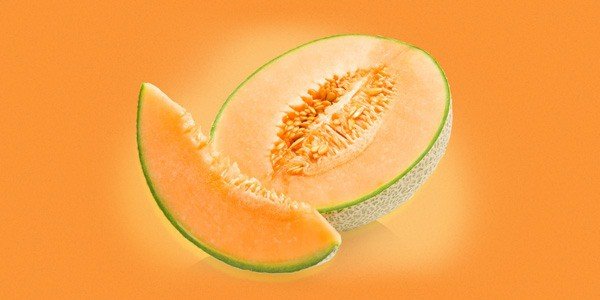Melon

Melon – origin and cultivation
Melon – this is a plant from the Pumpkin family. Africa and East India are considered his homeland.
The melon is a heat- and light-loving plant resistant to drought and soil salinity, which does not tolerate an increase in air humidity.
On one plant, depending on the variety and place of cultivation, from 2 to 8 fruits weighing from 1.5 to 10 kilograms can be formed.
Melon fruits are spherical or cylindrical in shape, usually yellow or green in color, but they are also found, not in Bulgaria, in brown or white with green stripes color.
The ripening period is usually from 2 to 6 months.
Nutritional value per 100 grams
• Proteins – 0.6 grams;
• Fats – 0.3 grams;
• Carbohydrates – 7.5 grams;
• Mineral composition – 0.6 grams;
• Water – 90 grams;
• Caloric content – 35 kilocalories;
Since the calorie content of 100 grams of raw melon is 35 kilocalories, it is therefore recommended for absolutely all people, including those suffering from obesity.
However, it is important to remember that these fruits stimulate the appetite. You should also not overdo it with dried melon, as 100 grams of it contain 341 kilocalories.
Its excessive consumption can cause the development of metabolic syndrome.
Melon – useful properties
The chemical composition of the melon depends to a significant extent on the variety. The fleshy part of this fruit contains sugars /up to 16-18 and even 20%/, carotene, vitamin B9, C, P, provitamin A.
The large amount of iron and folic acid determine to a significant extent the medicinal properties of melon fruits.
Both the fleshy part and the seeds of the melon contain up to 30% oil with high levels of polyunsaturated vegetable fats, which is completely suitable for human consumption as food.
In addition, melon fruits have a beneficial effect on digestive processes, and folic acid is essential for the hematopoietic process.
Melon is very useful for atherosclerosis, anemia, cardiovascular diseases.
These fruits have been used as a medicinal remedy for a very long time.
The old Bulgarian “herbalists” recommended their fleshy part for diseases of the stomach, for various mental disorders /most often in a state of depression/, tuberculosis, rheumatism, scurvy, gout and as an anti-inflammatory, antitussive and anthelmintic agent.
The decoction of melon seeds was prescribed by folk healers for urinary retention, bladder stones, and melon juice for constipation and hemorrhoids.
Aqueous infusion of melon seeds has long been known for its diuretic and slightly laxative properties and is very useful for diseases of the kidneys, liver and bladder.
As is well known, melon is an excellent thirst quencher, calms the nervous system.
Nutritionists recommend it as a healing food for anemia, cardiovascular diseases, atherosclerosis, liver and kidney diseases.
The healing properties of the melon are explained by scientists with the high content of vitamin B9 and C, iron salts and potassium in it.
The medicinal properties of these fruits depend on their ripeness. For example, underripe melons are not recommended for people suffering from stomach ulcers and acute gastritis.
It is not desirable to consume these fruits on an empty stomach – it is considered safest to eat melons between meals.
Once upon a time, the decoction of melon seeds was used to treat gonorrhea, and the decoction of the skin and roots was used to cleanse the stomach.



